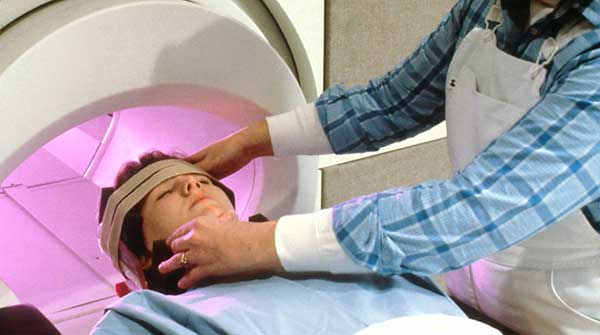New lab will examine how interventions like exercise can affect the treatment of chronic diseases such as cancer
A team of University of Alberta researchers has received a grant of $507,115 to create a state-of-the-art health laboratory focusing on the long-term symptoms commonly experienced by cancer survivors.
 Edith Pituskin |
 Michael Stickland |
 Stephanie Thompson |
“People are commonly suffering with the effects of necessary anti-cancer treatments for the remainder of their life,” says clinician scientist and nurse practitioner Edith Pituskin, associate professor and Canada Research Chair in the University of Alberta’s Faculty of Nursing and member of the Cancer Research Insitute of Northern Alberta. “These effects can include difficult chronic fatigue and poor exercise tolerance leading to a cycle of depression and poor quality of life.”
The grant comes from the Canada Foundation for Innovation’s John R. Evans Leaders Fund to equip the new U of A Precision Human Health Laboratory. The funding is part of a larger $960 million federal initiative aimed at supporting the work of more than 4,700 researchers across Canada.
The laboratory aspires to bridge the gap between research and clinical practice. It will provide tools for researchers to study exercise tolerance and cardiovascular health. “This is a combination of a vision to really expand exercise as a clinical tool,” said co-principal investigator Michael Stickland, a professor in the Division of Pulmonary Medicine and a member of the Women and Children’s Health Research Institute.
“What makes this lab truly unique is that because of the clinical positions the three of us have, there are tremendous opportunities to bring this research to patients.”
Stephanie Thompson, another co-principal investigator and associate professor in the Division of Nephrology whose research explores chronic kidney disease, explains that in addition to its therapeutic potential, exercise can be used to safely stress a patient’s bodily systems to reach a better understanding of the physiological problems that underlie clinical issues she sees in her practice.
“I believe there is no other intervention that can have as many widespread physiological and psychological impacts as exercise,” she said.
The lab comes at a crucial time as Canada faces an increasing number of patients living with chronic diseases, making it a growing challenge for healthcare providers as people age and complex conditions like heart attacks and strokes continue to be leading causes of death. Stickland noted that patients often don’t just have single conditions but face multiple illnesses, called comorbidities, complicating their care.
Studies at the new lab will help unlock some of the complexities surrounding chronic diseases by examining how interventions like exercise can affect the diverse conditions patients face.
Pituskin said there’s still much to understand in recommending exercise as a treatment, especially in terms of personalizing physical activity for patients because of a lack of knowledge about how physical activity can be personalized and adapted to benefit patients.
“With clinical conditions, there are certain sets of symptoms and investigations that would tell you, ‘OK, now’s the time to start this particular treatment.’ You would know the kind of treatment, the dose and how long to prescribe it,” Pituskin said.
The Precision Human Health Laboratory is hoping to be operational soon, bringing the promise of more effective, tailored treatments for chronic diseases closer to reality for thousands of Canadians.
| Troy Media
The opinions expressed by our columnists and contributors are theirs alone and do not inherently or expressly reflect the views of our publication.
© Troy Media
Troy Media is an editorial content provider to media outlets and its own hosted community news outlets across Canada.


